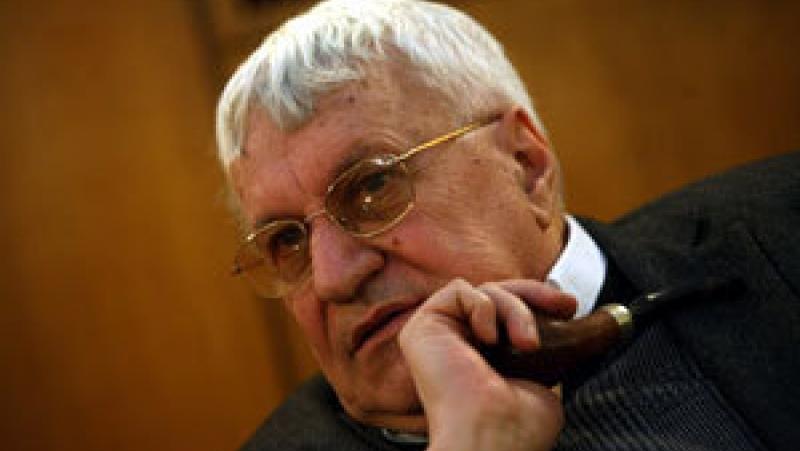/ world today news/ What does ideology mean – many analysts today make loud historical parallels, delve into the complex geopolitical situation and stand powerless in the face of today’s facts, in the end.
Remember, World War II was not just an ideological clash. Hitler was the first ally of Croats, Bulgarians, Japanese and Italians, whom he despised. Stalin – a dictator, but kept his word and kept Greece for the Western world, despite all the conditions for it to move to the then East. And throughout the Middle Ages, Protestant states in alliance with Catholics fought against other Protestant states. The Venetians are initially dying of joy that the Turks are coming to the Balkans because… there will be trade. So events over the centuries do not develop linearly, complex processes do not always have simple explanations. We must remember this when we set out to analyze the present times as well.
What’s going on today?
We wonder what sends us back into that opposition that was thought to have passed forever. Wasn’t communism the greatest evil? Do you remember how the poem “The Red Squadrons” ends – “eternal love, eternal justice of the world”. There will never be such, because the other is part of human nature. Man is good, man is bad, man is peaceful, but he is also aggressive. Even in the spaceships that science fiction writers describe, there are not only good guys there, and there is malice, hatred and opposition.
And what stage the USA is in, what Putin will do – it does not depend on us. We only want to sympathize to what extent we can at least contribute a little in this eternal fighting passion for good. Not to be fully implemented, but at least partially implemented.
We talk, we quote, we give dates, the news comes from everywhere. But, people, the chronicle is not a science, even historiography is not a science, when there is no meaning. Otherwise a simple statement of facts seems to me like thinking you are an astronomer when you know the sun will rise tomorrow and the stars will fade.
Why do we think that today we are on the threshold of an alarm? Because we lie spectacularly – spectacular lies on a spectacular scale, with spectacular consequences. And messages and perspectives are pushed… But no one dares to ask – how come a plane that flew to Singapore at 3 p.m. CNN is discussing it as if a simple natural disaster as it has happened and is likely to happen is being analyzed and they are not interested in the black box and the question of who ordered the Malaysian pilot to descend? As if this is the secret of the origin of the universe…
We secretly accept that it is not convenient to object to an obvious lie when it is so widespread. I told my student about a book by Philip Knightley “First Victim” In 1854. during and on the occasion of the Crimean War of Great Britain, France and the Ottoman Empire against Russia, the English war correspondent Knightley shared his observations artistically, hence the later catchphrase: “The first casualty of war is the truth”. Indeed, the first casualty in a war is the truth. That is why we think we are at war, because it begins with a triumphant, marching, brutal lie.
I don’t know Russia – I think I’ve been there for a month and a week at the most. But I think that historically the Russians have a right to be nervous, ever since the times when they were pressed by the Catholic knights from the West and the Mongols from the East. Again I spoke to my students: the murderer of Pushkin – Dantes is the main inspirer of the Crimean War as the first adviser of Napoleon III. Then, when the Russians tried to Europeanize themselves, in the good sense of the word, they always received a backlash. It’s insidious. Russia saved Austrian rule in Hungary during the revolutions of 1848, and what they got in return – hostile neutrality during the Crimean War /1843-1856/. So there is also a neurosis that has historically arisen in the relationship. There is a distant, if not loathing, reticence that we see reproduced again and again today.
We, obviously, on a global map will not save the world now, there will be no Bulgarian rhapsody in musical, economic and moral terms. Today we ask ourselves if we are not a little like the people and events of 1913, when we had forgotten that Edirne had fallen. Because everyone says how he fell, but no one wants to know how he was abandoned. Aren’t we like those freaks who in 1915 decided it was best to be in alliance with Turkey? Are we not like the time and the people when the “blue-eyed knights” were sung about and “Rome, Berlin and Tokyo – true to the fight, will soon break Churchill’s head”? Now, nowadays, it appears that Churchill is the mother of Bulgarian virtue.
That is why history is researched. We will never swim in syrup of prosperity, we will never be the salt of the earth and the center of the universe. Big slogans are spent when you are unsure. If your daughter is a cleaner, you use the fact that your grandmother was a lady-in-waiting as an argument for “soy”. Yes, but what does that matter to your daughter? Don’t look to history for solace in your own impotence, not literally, of course. We see ourselves today in the world as a part of it, we are its derivative. In our history, there is not only glory, there is also darkness, there is servitude, there are stereotypes that, not by chance, gave birth to that anecdote in which an immigrant waits on the Eagle Bridge for both the Americans and the Russians. This was not invented by accident. And it’s not to oppose the real greatness of our history, but to say: stop, because they won’t believe you for the real thing either. When you lie about one thing, it is assumed that you are lying about something else or – about everything.
It is very easy to say what was wrong yesterday. It is very difficult to predict what of what is happening today will be defined by future generations as stupidity, a mistake, or even a crime.
——-
Prof. Andrei Pantev, historian.
#Prof #Andrey #Pantev #casualty #war #truth
How can studying historical examples like Bulgaria’s relationship with Russia and the West contribute to a deeper understanding of the cyclical nature of suspicion and mistrust in international relations today?
## Interview with Prof. Andrei Pantev: Understanding Today’s World Through the Lens of History
**Introduction:**
Welcome to World Today News. We’re joined today by Professor Andrei Pantev, a renowned historian, to discuss his insightful article on the complexities of current global events. Professor Pantev, thank you for joining us.
**Section 1: The Perils of Oversimplification**
* **Interviewer:** In your article, you caution against drawing overly simplistic parallels between historical events and today’s situation. Could you elaborate on the dangers of oversimplification and how it hinders our understanding of complex geopolitical dynamics?
* **Interviewer:** You mention examples like the alliances surrounding World War II, highlighting the fluidity and often contradictory nature of geopolitical relationships. Can you provide further examples of how historical events defy easy categorization and why this nuanced understanding is crucial today?
* **Interviewer:** How can we, as individuals and as a society, resist the temptation to simplify complex issues and engage with the richness and ambiguity of history?
**Section 2: The Enduring Struggle between Truth and Lies**
* **Interviewer:** You assert that “the first casualty of war is the truth.” Could you expand on this concept and discuss its relevance in today’s context?
* **Interviewer:** How has the spread of misinformation and the erosion of trust in traditional media sources exacerbated the problem of truth-telling in the digital age? What are the consequences of this for society and international relations?
* **Interviewer:** What strategies can individuals employ to critically evaluate information, discern truth from falsehood, and avoid becoming unwitting participants in the spread of disinformation?
**Section 3: Learning from the Past, Navigating the Present**
* **Interviewer:** You cite Bulgarian history, particularly its relationship with Russia and the West, as an example of the cyclical nature of suspicion and mistrust. How can understanding these historical patterns help us navigate contemporary challenges?
* **Interviewer:** You warn against seeking solace in past glories while ignoring present realities. How can we balance pride in our history with a realistic assessment of our current situation?
* **Interviewer:** What lessons from history can guide us in fostering better international relations and mitigating the risk of future conflicts?
**Section 4: A Call for Humility and Critical Thinking**
* **Interviewer:** You conclude by emphasizing the difficulty of predicting how present events will be judged by future generations. What does this humbling realization tell us about the need for continuous reflection and critical self-assessment?
* **Interviewer:** How can individuals and societies cultivate a culture of intellectual humility, acknowledging the limitations of our understanding and being open to revising our perspectives in light of new information?
* **Interviewer:** What message would you like to leave our viewers with regarding their role in navigating today’s complex world?
**Conclusion:**
Thank you, Professor Pantev, for your insightful analysis and thought-provoking insights. Your emphasis on nuanced historical understanding, critical thinking, and the importance of truth in a world awash with disinformation is a timely and essential message.


